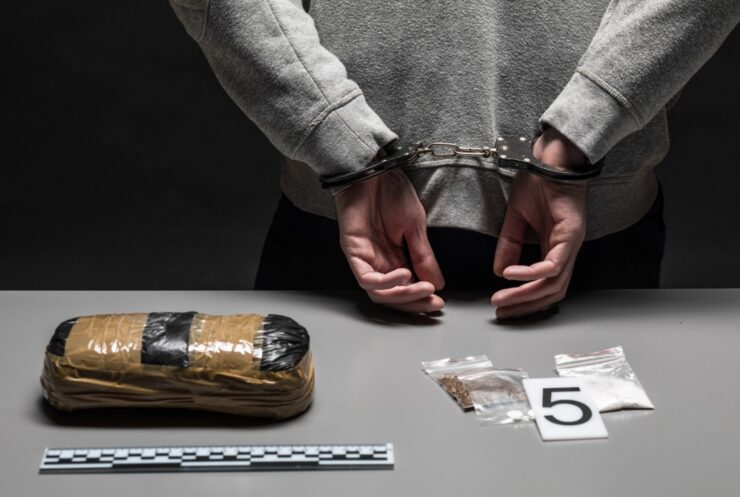Facing drug crime charges can feel overwhelming, especially when the consequences of a conviction can be life-changing. Navigating the complexities of drug crime charges can be daunting, but having a skilled defense attorney by our side can make all the difference.
A drug crime defense attorney plays a crucial role in ensuring that our legal and constitutional rights are protected throughout the legal process. They employ their in-depth knowledge of the law to craft a strategic defense tailored to each unique situation.
Every case presents its own set of challenges, but a well-versed attorney brings invaluable insights into minimizing potential penalties. By understanding the nuances of various drug-related laws, they help us explore legal avenues that we might not be aware of. This proactive approach can sometimes lead to reduced charges or even dismissal, impacting our future significantly.
When faced with the prospect of defending against drug crime allegations, understanding our rights is paramount. We should feel confident that our attorney will vigorously advocate for us, ensuring a fair legal process. Whether we’re addressing issues of search and seizure or questioning evidence, their expertise is the backbone of our defense. Together, we navigate the complexities of the justice system, striving for the best possible outcome.
Understanding Drug Crime Charges

Drug-related charges can significantly impact an individual’s future, potentially leading to severe legal consequences. It is crucial for us to examine the types of drug offenses, how laws differ across federal and state levels, and the impacts on one’s criminal record. This enables us to better navigate the complex legal landscape of drug crimes.
Varieties of Drug Offenses
Drug offenses encompass a range of activities linked to controlled substances. Drug possession involves holding any illegal drug, such as Schedule I or Schedule II substances. The difference between a misdemeanor and a felony drug charge often depends on the amount and type of drug.
Drug trafficking, on the other hand, involves illegal selling or distributing controlled substances. This offense is treated as a serious felony due to its impact on public safety and health. Drug paraphernalia, which includes items used to consume or handle these substances, is also illegal if intent for drug use is proven.
Grasping the nuances of each offense type is essential since penalties and defenses vary widely.
Federal and State Drug Laws
Our legal system divides drug laws between federal and state jurisdictions. The Controlled Substances Act classifies drugs into Schedules I-V based on potential for abuse and medical use, guiding federal enforcement. State laws may differ in classification and penalty severity.
Federal laws generally impose heavier penalties, especially for trafficking and large-scale operations. State statutes can be more lenient or specialized, addressing local issues such as medical marijuana regulations. Understanding this dual system is crucial, as charges can sometimes fall under both federal and state laws, impacting the defense strategy.
Impact of Charges on Criminal Record

Drug charges can have long-lasting effects on an individual’s criminal record. A felony conviction, like drug trafficking, often results in harsher penalties, including prison time and larger fines, compared to a misdemeanor charge such as simple possession. These records are accessible during background checks, affecting employment, housing, and education opportunities.
Some states offer expungement or diversion programs for minor offenses, providing opportunities to clear one’s record under specific conditions. It is essential to be aware of how drug crime charges can shadow us long after legal proceedings have concluded, influencing various aspects of daily life.
Legal Defense Strategies
In defending against drug crime charges, we must carefully evaluate every avenue available. This involves assessing the prosecution’s case, protecting against illegal searches, and exploring plea deals that may benefit our client.
Building a Strong Defense
A strong defense requires us to meticulously examine all evidence presented by the prosecution. As criminal defense attorneys, we investigate the details of the case, from the initial arrest to the evidence collection process. Our approach often includes questioning the validity of evidence involving drug manufacturing or distribution.
We also explore potential flaws in the prosecution’s case. For example, we look for inconsistencies in witness testimonies or errors in the handling of drug samples. By doing so, we aim to weaken the prosecution’s arguments.
Additionally, the defense strategy may involve presenting evidence of any possible entrapment or coercion by law enforcement. This multifaceted approach can often lead to favorable outcomes for our clients.
Rights and Protections Under the Fourth Amendment

The Fourth Amendment protects against unlawful searches and seizures. We scrutinize whether law enforcement officials obtained search warrants properly and adhered to legal protocols throughout the criminal process.
Any evidence obtained through illegal searches can be challenged in court. If our analysis shows that evidence was unlawfully acquired, we may file motions to suppress it, which can be crucial in limiting the prosecution’s case against a drug crime defendant.
Understanding these rights is essential. It can significantly impact the outcome of cases, whether they involve simple possession for personal use, drug distribution, or more serious charges like drug conspiracy.
Possibilities for Plea Deals and Sentencing Alternatives
Exploring plea deals is a vital part of our defense strategy. Plea agreements can sometimes lead to reduced charges or lighter sentencing based on the circumstances of the case. This can be especially beneficial in cases involving minor drug offenses or prescription drug fraud.
Our role as defense attorneys involves negotiating favorable terms that may include rehabilitation programs or community service instead of jail time. Understanding the range of legal options allows us to propose alternatives that align with our client’s best interests.
Through skillful negotiation, we can help defendants avoid the harsher penalties associated with federal drug charges. This process requires insight into both the legal system’s demands and the individual needs of each client.

